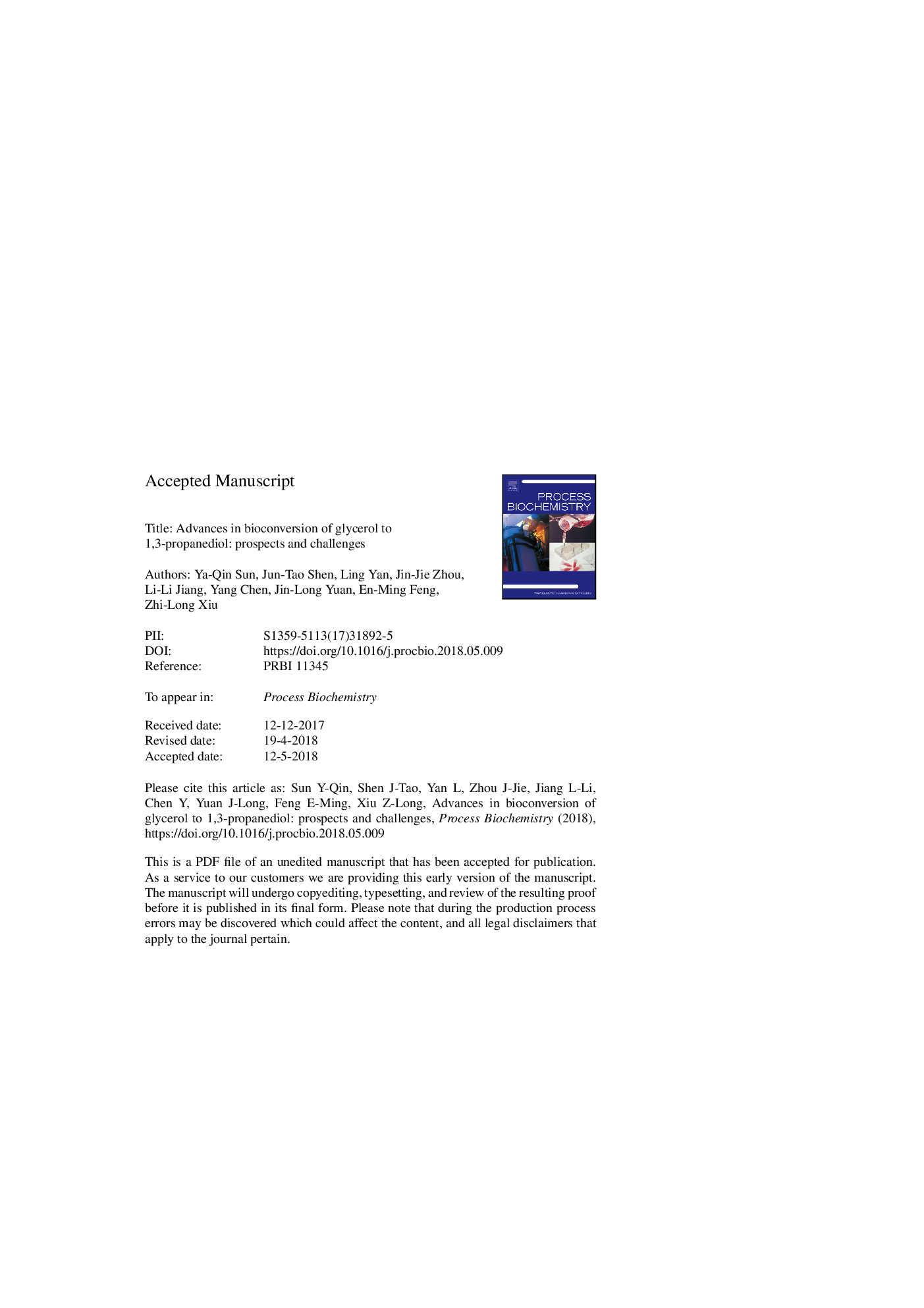| Article ID | Journal | Published Year | Pages | File Type |
|---|---|---|---|---|
| 6495032 | Process Biochemistry | 2018 | 45 Pages |
Abstract
1,3-Propanediol, a monomer for synthesis of polytrimethylene terephthalate, polyethers, polyurethanes, and heterocyclic compounds, has attracted worldwide attention. It can be produced from renewable resources using microorganisms, which focus mainly on the ecologically friendly process, industrial safety and sustainable development. This review summarized and commented in the view of bioprocess and bioengineering, especially on bioconversion of glycerol into 1,3-PD since 2010. Various strategies for microbial production of 1,3-PD from glycerol including strains screening and improvement, two-step and multi-stage fermentation, sole and co-substrate fermentation, co-culture, and microbial consortium were reviewed and compared. Besides experiments, theoretical analyses, such as fermentation kinetics, stability and robustness analysis, metabolic and system engineering analysis were also highlighted. The present strategies of the downstream processing of 1,3-PD were compared according to their advantages and drawbacks. Meanwhile, the novel technology of microbial electrosynthesis for biochemicals was well introduced and discussed. Finally, The future prospects and challenges of 1,3-propanediol from biotechnology were discussed for its industrial production.
Keywords
Related Topics
Physical Sciences and Engineering
Chemical Engineering
Bioengineering
Authors
Ya-Qin Sun, Jun-Tao Shen, Ling Yan, Jin-Jie Zhou, Li-Li Jiang, Yang Chen, Jin-Long Yuan, EnMin Feng, Zhi-Long Xiu,
